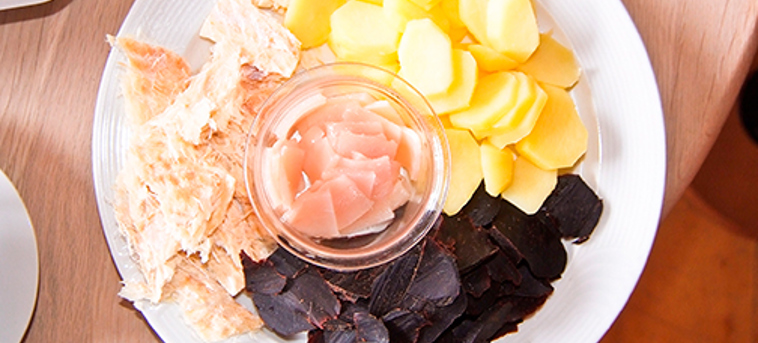
Benefits and Disadvantages
“Eat whale meat and blubber, then you will grow tall and strong,” is an old Faroese saying. Pilot whale meat and blubber contain many valuable nutrients but also high levels of contaminants
Pilot whale meat contains 25 % protein, and it is high in iron, carnitine and vitamins A and B. The unsaturated fatty acids are of the type doctors recommend against cardiovascular disease.
Everyone who has tried it knows that whale meat and blubber is very satisfying food. Blubber has long been considered to be especially healthy and vitalising, in a climate and country where vitamins from both sun and vegetables are not in large supply.
However, pilot whales live high up in the food chain. This means that they accumulate higher levels of pollutants than many other marine resources. Research shows that in addition to the healthy nutrients in pilot whale meat and blubber, they also contain both mercury and PCBs.
How polluted the whales are differs from school to school and from animal to animal. Research shows that pilot whales that live in southern seas are more polluted than those in the northern hemisphere.
If pilot whale hunting were to cease, it would not be because of over-exploitation. It would be because of the pollution of the world’s oceans by heavy industries and industrialised agriculture in urban areas, far from the waters around the Faroes.
This is a matter of deep concern in the Faroes, which are so dependent on a clean sea for their livelihood. Elimination of pollutants at their source should be the major focus of concerted action today by governments, industries and serious environmental organisations everywhere.
Further Information:
NATURAL
REGULATED
COMMUNAL
SUSTAINABLE


